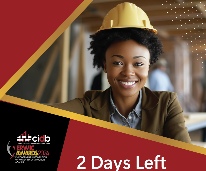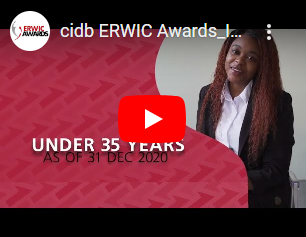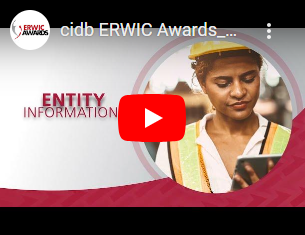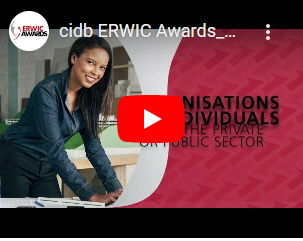





The ERWIC Awards have created a support network for women in construction, which is crucial in building confidence and encouraging women to take on leadership roles. They also promote the participation of women in the industry, with a significant increase in the number of women participating in the awards over the past five years.
In terms of the future, Dladla envisions a construction industry that is more diverse and inclusive, with better representation of women and other groups, “The industry will benefit from the diversity of thoughts and experiences that women bring, and that it will be more caring towards issues around health and safety, and diversity.” Overall, the cidb ERWIC
Awards have played a key role for the past five years in promoting gender diversity and inclusion in the industry- strengthening mentoring networks and encouraging more women to participate in construction projects. “
Unlocking the potential of women in construction requires a multifaceted approach that
addresses the unique challenges faced by women in the industry. Dladla states, “By
prioritising diversity and inclusion, providing training and mentorship opportunities, and
leveraging technology to promote gender equality, we can create a more inclusive
environment that supports the growth and success of women in the sector.”
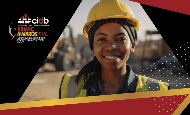













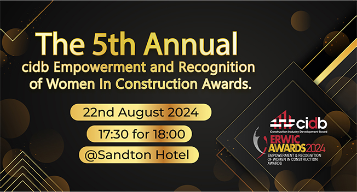






The cidb ERWIC Awards – A catalyst for change in the construction industry
The cidb ERWIC Awards have been an important catalyst for change in the construction industry, recognising and empowering women who have made significant contributions to the sector. The awards have also helped to create a more inclusive environment by providing a platform for women to showcase their work and achievements. Taking place in Sandton on the 22nd of August this year, the cidb ERWIC Awards are celebrating their 5th year of promoting Gender Agenda.
According to Bongani Dladla, CEO of the Construction Industry Development Board (cidb), “The ERWIC Awards have played a crucial role in changing the mindset of clients and women themselves. In the past, when asking about women in construction, everyone would mention only a few names. However, now, there are many more women being recognised
and awarded, which is helping to change the perception that women are very capable of doing construction work.”
Dladla highlights, “The awards are helping to mainstream the presence of women in construction, making it more visible and recognised. The awards are not just about recognising women but also about changing the culture of the industry and how we view who is competent and who is not.”
Unlocking the potential of women in construction requires a multifaceted approach that addresses the unique challenges faced by women in the industry. Dladla states, “Byprioritising diversity and inclusion, providing training and mentorship opportunities, and leveraging technology to promote gender equality, we can create a more inclusive environment that supports the growth and success of women in the sector.”
“As we move forward, it is crucial that as an industry we continue to learn from best
Practices from other countries and prioritise the development of women in
construction to drive innovation and growth in the industry,” Dladla concludes.
To find out more, please visit www.erwicawards-cidb.co.za
